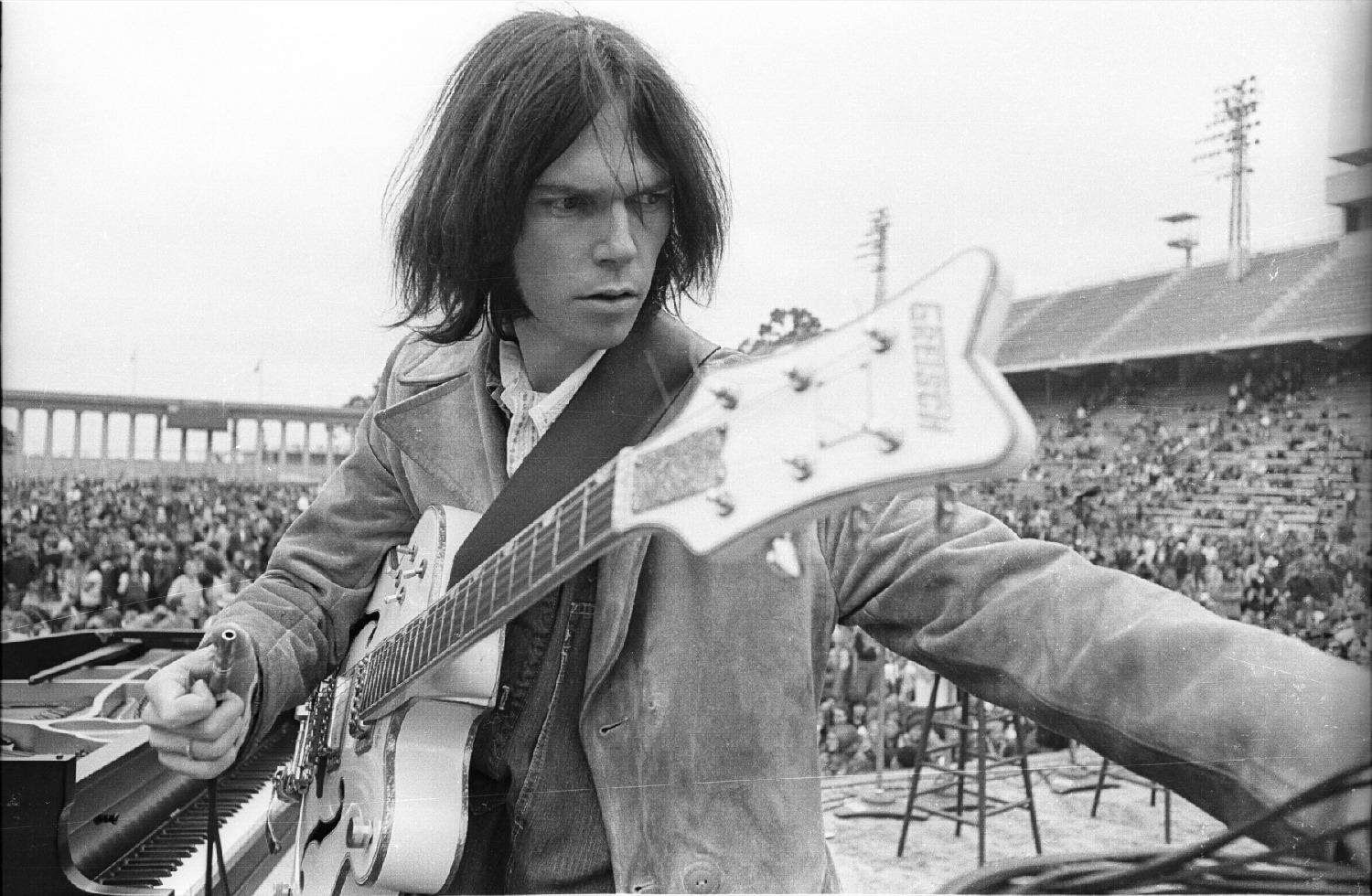Neil Young, an iconic figure in the world of music, has captivated audiences for over five decades with his distinct voice and profound songwriting. Known for his unique blend of folk, rock, and country, Young has consistently pushed the boundaries of musical expression, making him a pivotal influence on generations of artists. His thought-provoking lyrics often explore themes of love, loss, and social justice, resonating deeply with listeners around the globe. From his early days with Buffalo Springfield to his prolific solo career, Neil Young's contributions to the music industry are both vast and varied. His ability to evolve with the times while maintaining his artistic integrity is a testament to his enduring legacy.
As a prolific musician, Neil Young has released numerous albums, each reflecting his personal experiences and societal observations. His distinctive guitar work and emotive vocals have solidified his place in rock history, earning him a dedicated fan base. Beyond music, Young has also ventured into activism, advocating for environmental causes and indigenous rights, proving that his influence extends far beyond the stage.
In this article, we will delve deep into the life and career of Neil Young, exploring his biography, musical journey, and the impact he has made on the world. Whether you're a long-time fan or just discovering his work, join us as we celebrate the remarkable legacy of this musical legend.
What is Neil Young's Biography?
Neil Young was born on November 12, 1945, in Toronto, Canada. He exhibited an interest in music from a young age, influenced by the sounds of folk and rock music that permeated the cultural landscape of the 1960s. Young's career began to take shape when he moved to California and joined the band Buffalo Springfield, whose hit "For What It's Worth" became an anthem of the protest movement.
Neil Young's Personal Details and Bio Data
| Detail | Information |
|---|---|
| Name | Neil Percival Young |
| Date of Birth | November 12, 1945 |
| Birthplace | Toronto, Canada |
| Genres | Rock, folk, country |
| Occupation | Musician, songwriter, producer, director |
| Years Active | 1960s - Present |
| Notable Works | Harvest, After the Gold Rush, Rust Never Sleeps |
| Awards | 2 Grammy Awards, Rock and Roll Hall of Fame Inductee |
What Influences Shaped Neil Young's Music?
Throughout his career, Neil Young has drawn inspiration from a variety of sources. His Canadian roots and the American folk revival of the 1960s significantly influenced his musical style. Artists like Bob Dylan and Joni Mitchell played a crucial role in shaping Young's songwriting approach. Additionally, the social upheaval of the 1960s, including the Vietnam War and civil rights movements, provided a backdrop for many of his most poignant lyrics.
- Folk music traditions
- Rock and roll pioneers
- Personal experiences and relationships
- Political and social issues
How Has Neil Young Evolved as an Artist?
Neil Young's evolution as an artist is marked by a willingness to experiment and a refusal to conform to commercial pressures. In the 1970s, he shifted from the acoustic sound of his earlier work to a more electric, rock-oriented style, exemplified in albums like "Tonight's the Night" and "Rust Never Sleeps." This transition showcased his ability to reinvent himself while staying true to his core artistic values.
What Are Some of Neil Young's Most Iconic Albums?
Neil Young has an extensive discography, with several albums considered classics. Here are some of his most iconic works:
- Harvest (1972) - Featuring the hit song "Heart of Gold," this album is often regarded as one of Young's greatest achievements.
- After the Gold Rush (1970) - A landmark album that includes timeless tracks like "Southern Man" and "Only Love Can Break Your Heart."
- Rust Never Sleeps (1979) - A powerful blend of acoustic and electric music, this album captures Young's raw energy and lyrical depth.
- Zuma (1975) - Showcasing his rock roots, "Zuma" features classic tracks like "Cortez the Killer."
What Impact Has Neil Young Made on Music and Culture?
Neil Young's impact on music and culture is undeniable. His willingness to tackle complex issues—such as environmentalism, war, and inequality—through his music has resonated with fans and influenced countless artists. Young's dedication to authenticity and artistic freedom has inspired musicians to prioritize their vision over commercial success.
How Has Neil Young Contributed to Environmental Activism?
In addition to his musical career, Neil Young is a passionate advocate for environmental causes. He co-founded the organization "Farm Aid" to support family farmers and has been vocal about the dangers of climate change and the need for sustainable practices. His 2019 album "The Visitor" reflects his commitment to these issues, urging listeners to take action for the planet.
What Legacy Will Neil Young Leave Behind?
As Neil Young continues to create music and engage in activism, his legacy grows stronger. With a career spanning over five decades, he has become a symbol of artistic integrity and social consciousness. Young's influence on music, culture, and activism will undoubtedly endure, inspiring future generations to use their voices for change.
In conclusion, Neil Young is not just a musician; he is a cultural icon whose work transcends generations. His ability to connect with audiences through heartfelt lyrics and powerful melodies has solidified his status as one of the greatest artists of our time. As we reflect on his remarkable journey, we celebrate the timeless voice of Neil Young and the lasting impact he has made on the world.




